#Unifor
Canada’s Unifor Also Reaches Tentative Deal With All Automakers
Canadian union Unifor wrapped a very brief strike on Monday after reaching a tentative deal with Stellantis. The union’s actions didn’t even last a full day before workers were notified that the strike had ended.
The resulting deal mimics what we’ve seen offered to the UAW after taking on all three American automakers since mid-September, with the Canadian pay bumps looking a little leaner than the percentages seen in the United States. Still, it’s a pretty good deal yielding Unifor members a noteworthy increase in hourly wages and a shorter path to receive top-level pay.
Unifor Strike Targets General Motors in Canada
While the United Auto Workers (UAW) decided to implement an aggressive strike campaign that bucks some of the historical trends American union leadership feels did not serve the cause in the past, Canada’s Unifor has vowed to take a more measured approach during its contract negotiations with the industry. However, that does not mean simply rolling over for automakers in order to strike any old deal.
Last week, Unifor criticized General Motors for failing to meet important elements of its pattern agreement with Ford Motor Company. With both sides failing to make any tentative agreements by the Monday deadline, Unifor has announced plans to strike in Ontario — hindering the company’s ability to manufacture light and heavy-duty pickups.
Report: Unifor Leadership Seeking Friendlier Approach Than UAW
Canada’s Unifor is slated to negotiate terms with Stellantis, General Motors, and the Ford Motor Company starting next month. But it appears to be taking a softer approach than what we’ve been seeing from its counterpart in the United States.
The UAW has been promising to play hardball with automakers in an effort to regain lost ground stemming back to the early 2000s. It’s going into contract negotiations with an adversarial tone and has said it would withhold support of any politician that refused to support its demands. But Unifor seems to be taking up a more cordial tone.
Former Union Boss Accused of Financial Shenanigans
In the latest development of the Jerry Dias saga – the man who, until recently, led most of the unionized auto workers in Canada – has taken yet another turn. According to reports, Dias is being accused by the union of taking money from a COVID-19 testing company, allegedly in exchange for promoting that outfit as a place to purchase test kits.
For those playing at home, the Dias saga has played out in this form: An announcement of taking time off for medical reasons, followed by an abrupt retirement, and now this development.
Jerry Dias, Face of Canadian Automakers Union, Under Investigation
Readers may recall yesterday’s news about the retirement of Jerry Dias, head honcho for Unifor, which is the union outfit that represents many autoworkers in Canada. At the time, it was stated the man retired ahead of schedule due to health issues.
Now, less than 24 hours later, industry outlets are reporting that Dias has been under investigation by the union since January for “an alleged breach” of the organization’s constitution.
Canadian Union Boss Retires, Cites Health Issues
Jerry Dias, the man who’s been at the helm of Unifor in Canada since its inception, has chosen to retire because of health reasons. On medical leave since last month, Dias announced his decision in a statement yesterday.
Unifor, in case you’re wondering why we’re covering this on a car site, represents about 40,000 workers in the Canadian auto industry and was formed out of a merger between the Canadian Auto Workers union and the Communications, Energy and Paperworkers Union of Canada in 2013.
Setting the Stage? Mexican Auto Employees Elect Independent Union
When the United States-Mexico-Canada Agreement (USMCA) was being floated as a possible replacement for the North American Free Trade Agreement (NAFTA), one of the biggest selling points was the inclusion of new labor protections for Mexican workers. The Trump administration wanted to ensure serious labor reform took place south of the border to ensure union business was conducted responsibly and wages would increase. As a byproduct, USMCA is supposed to encourage North American synergies while gradually discouraging U.S. businesses from blindly sending jobs to Mexico to capitalize on poverty tier wages.
That theory will now be tested in earnest after General Motors employees from the Silao full-size truck plant voted overwhelmingly to dump the Confederation of Mexican Workers (CTM) for the Independent Syndicate of National Workers (SINTTIA).
GM Canada Tells Unvaccinated Workers to Stay Home, Union Unhelpful
Unvaccinated workers from General Motors’ CAMI Assembly Plant have been removed from the facility and forced into unpaid leave. The automaker had a deadline set for December 12th to have all employees vaccinated, with Unifor previously having urged the company to postpone the date. The Western world has seen a surge of citizens protesting vaccine mandates this year, with Canadian unions conducting more than a few of their own. Though several organizers have said they’re operating independently due to a shared belief that Unifor was offering insufficient support to members and was effectively siding with automakers.
Semiconductor Shortage Delays More Automobiles
The industry is having to stall more plants to contend with the semiconductor shortage that’s currently making it more difficult for you to get everything from a smartphone on up to your next vehicle. Ford Motor Co. recently informed employees that its Dearborn truck plant (easily one of its most profitable facilities) would need to be idled through the weekend to create a buffer for semiconductor chips. Worse yet, it’s not the first time the automaker has had to stall output of the F-150 this year. Ford has also started manufacturing trucks without all the necessary components, stating it would hold vehicles for a few weeks to account for supply chain delays.
Meanwhile, Chrysler has made a similar announcement about its minivan output as Windsor Assembly faces another chip deficit. Unifor Local 444 recently stated that the facility would be staring down the barrel of a four-week shutdown starting next week. Considering Chrysler’s minivans literally just dealt with a three-week stall over the chip shortage, union workers are understandably upset. Days earlier, General Motors Canada also announced that its CAMI plant in Ingersoll, Ontario, will likely remain idle until the middle of April.
Unifor Ratifies GM Labor Agreement, Oshawa Saved
Unifor members overwhelmingly ratified a new three-year contract with General Motors, effectively ending the union’s 2020 auto bargaining with Detroit automakers. Members backed the contract with 85 percent approval and secured meaningful investments into Canada’s automotive industry, including the $1 billion (USD) investment that saves Oshawa Assembly. It’s an important victory for the union and the Canadian auto workers it represents.
“This contract solidifies and boldly builds on GM’s Canadian footprint, with a $1.3 billion dollar investment that brings 1,700 jobs to Oshawa plus more than $109 million to in-source new transmission work for the Corvette and support continued V8 engine production in St. Catharines,” said Unifor National President Jerry Dias. “Jobs at all three Canadian sites are secure for the life of this agreement, including at the Woodstock Parts Distribution Centre, which will also see upgrades.”
Unifor Gets Something Done, Oshawa to Reopen
The closed General Motors plant in Oshawa, Ontario, will be reopening after the automaker reached a deal with Canadian workers. GM says that it will invest up to $1.3 billion in its facility and hire up to 2,000 workers. It’s an impressive outcome for a region that looked fated to struggle at maintaining automotive jobs for years to come. While the tentative three-year deal with Unifor has yet to be approved by workers, we’re doubtful they’ll be anything but supportive.
Despite being the victim of GM’s restructuring program and closing shop in 2019, the historic Oshawa Car Assembly (est. 1907) appears poised to once again begin churning out Chevrolet Silverado and GMC Sierra pickups for the masses.
Unifor Prepares to Strike After FCA Negotiations Go Sideways [UPDATED]
Canada’s preferred choice in unions, Unifor, warned that contract negotiations with Fiat Chrysler Automobiles were progressing slower than anticipated over the weekend. By Wednesday, news of a strike had begun brewing over social media. Local 444 was issuing FCA-WAP bargaining updates on Twitter and Facebook that included marching orders in the event that the day’s discussions didn’t end in a handshake.
“To ensure we are prepared for a strike, or strike coordinators have been working to finalize the details needed in order to begin, if and when necessary,” the union wrote to members. “If a tentative agreement is reached by 11:59pm October 14th, without an extension in place, then Local 444 along with brothers and sisters across the country at all FCA facilities will be on strike. As the talks continue late into the night, any updates will be posted to our social media pages and web page.”
That scenario is looking increasingly likely, especially as Unifor has explained there was little progress to report all afternoon. It also opened this week suggesting contract talks were “not quite where we feel [they] should be with this limited amount of time left on the clock.”
Canada Contributing $447 Million Toward Ford Plant Upgrades
With Ford and Unifor having agreed to a new three-year contract last month, Oakville Assembly (which currently manufacturers the Ford Edge and Lincoln Nautilus) is slated to be retooled to manufacturer electric vehicles and their batteries. While the first example wouldn’t roll off the assembly line until 2026, according to the agreement, Canada is excited about the prospect of green jobs. In fact, the Canadian government has committed itself to an ambitious program aimed at boosting electric vehicle sales in order to achieve net-zero carbon emissions by 2050.
We’re always suspect of central planning, as regulatory changes often have unintended consequences for the associated industries, but need to praise Canada for actually putting some money where its mouth is. Barring a mishap in 2023, the nation has promised to contribute $447 million (split evenly between the Ontario and federal governments) toward Ford’s 1.4-billion program to convert the facility.
Ford Chosen by Unifor as Canadian Bargaining Target
Unifor has selected the Ford Motor Company as its target for collective bargaining. Once negotiations conclude, the union will be using the terms established with the automaker to lay the groundwork for pattern deals with General Motors and Fiat Chrysler Automobiles.
While the talks have not yet begun, we already know Unifor wants to cement production commitments in Oakville, Ontario, where Ford is rumored to be ending Edge assembly. It would also like to secure deals for FCA plants in Brampton and Windsor. Naturally, the union will also be demanding wage increases — though this is sometimes the most contentious issue. Contract talks from 2016 became stuck in the mud over higher pay until Ford insisted employees remain subject to a 10-year wage grow-in that union members had been split on. It’s unclear if that will remain the case in 2020 but we genuinely haven’t had high hopes for the Union pulling out anything that resembles a major victory.
Detroit Three Strike Target ID'd Tuesday; Unifor Looks to Bring Public Cash Onside
With its members having recently voted to strike if bargaining teams don’t make headway, Canadian autoworkers union Unifor plans to reveal its first target next Tuesday. Contract talks kicked off last month, with Unifor aiming to maintain, at the very least, the current complement of Detroit Three workers north of the border.
With the auto industry in continued retreat in Canada, Unifor knows that the next four years could be the term in which one of the Detroit Three ceases to manufacture vehicles on Canuck soil. What’s left in the country is starting to look threadbare and futureless. Maybe some public cash will sweeten the landscape?




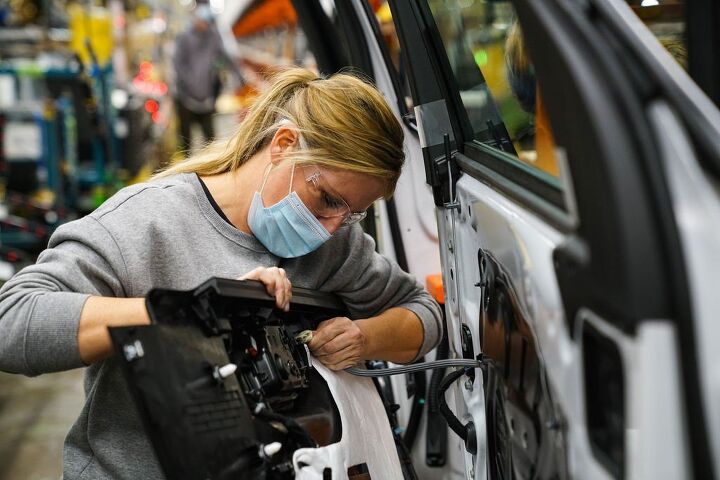


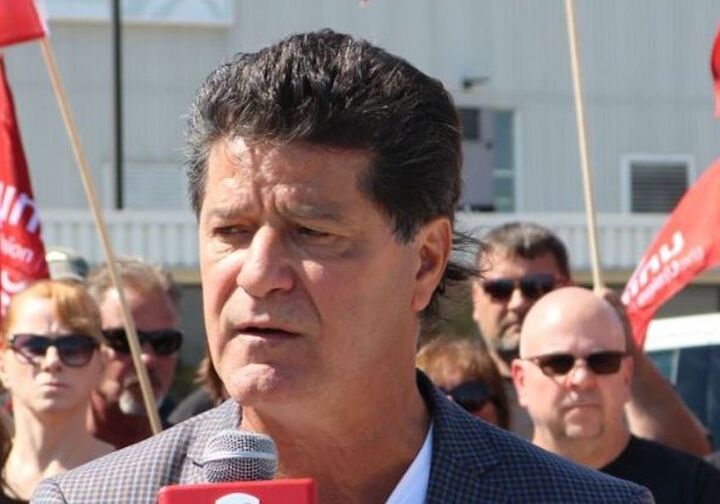


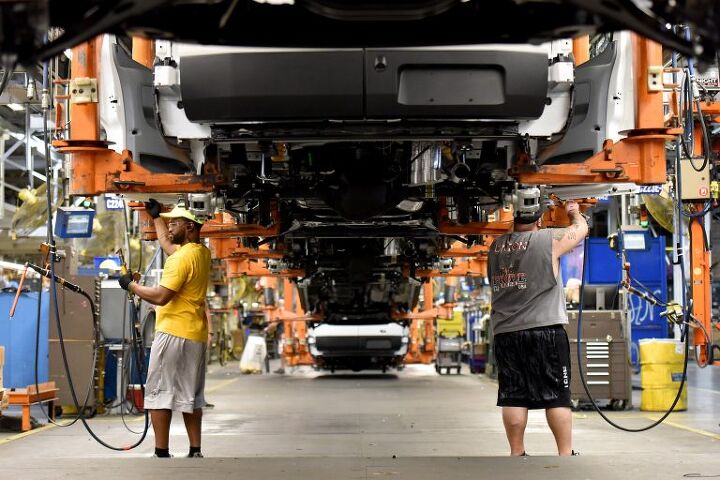


![Unifor Prepares to Strike After FCA Negotiations Go Sideways [UPDATED]](https://cdn-fastly.thetruthaboutcars.com/media/2022/07/19/9164468/unifor-prepares-to-strike-after-fca-negotiations-go-sideways-updated.jpg?size=720x845&nocrop=1)
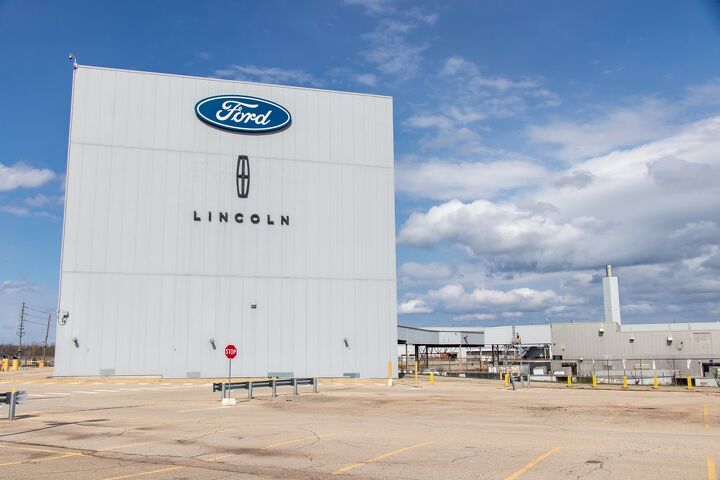

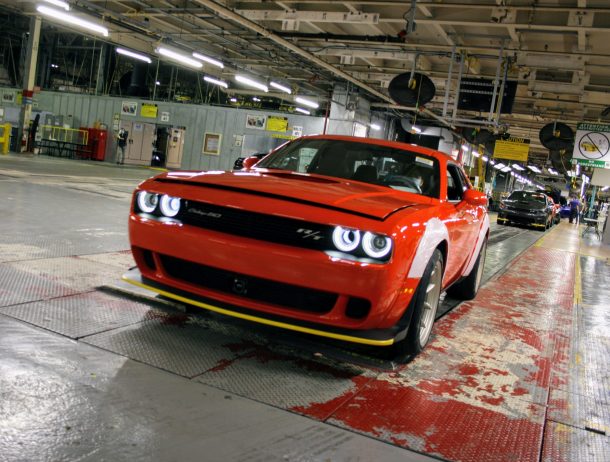












Recent Comments